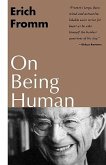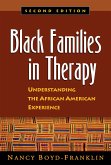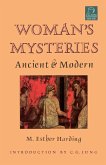- Broschiertes Buch
- Merkliste
- Auf die Merkliste
- Bewerten Bewerten
- Teilen
- Produkt teilen
- Produkterinnerung
- Produkterinnerung
The book introduces students to the most influential theorists who have contributed to our understanding of how we develop as individuals. It discusses the theorists who have built upon the developmental tradition established by Rousseau, along other theorists, including ethologists and psychoanalysts, who share a developmental outlook.
Andere Kunden interessierten sich auch für
![Theories of Development Theories of Development]() William CrainTheories of Development181,99 €
William CrainTheories of Development181,99 €![Cheap Psychological Tricks for Lovers Cheap Psychological Tricks for Lovers]() Perry BuffingtonCheap Psychological Tricks for Lovers9,49 €
Perry BuffingtonCheap Psychological Tricks for Lovers9,49 €![Women's Mental Health Women's Mental Health]() Women's Mental Health79,99 €
Women's Mental Health79,99 €![On Being Human On Being Human]() Erich FrommOn Being Human48,99 €
Erich FrommOn Being Human48,99 €![Interventions Following Mass Violence and Disasters Interventions Following Mass Violence and Disasters]() Interventions Following Mass Violence and Disasters54,99 €
Interventions Following Mass Violence and Disasters54,99 €![Black Families in Therapy Black Families in Therapy]() Nancy Boyd-FranklinBlack Families in Therapy48,99 €
Nancy Boyd-FranklinBlack Families in Therapy48,99 €![Woman's Mysteries Woman's Mysteries]() Esther HardingWoman's Mysteries25,99 €
Esther HardingWoman's Mysteries25,99 €-
-
-
The book introduces students to the most influential theorists who have contributed to our understanding of how we develop as individuals. It discusses the theorists who have built upon the developmental tradition established by Rousseau, along other theorists, including ethologists and psychoanalysts, who share a developmental outlook.
Hinweis: Dieser Artikel kann nur an eine deutsche Lieferadresse ausgeliefert werden.
Hinweis: Dieser Artikel kann nur an eine deutsche Lieferadresse ausgeliefert werden.
Produktdetails
- Produktdetails
- Verlag: Taylor & Francis Ltd (Sales)
- 7th edition
- Seitenzahl: 348
- Erscheinungstermin: 25. April 2024
- Englisch
- Abmessung: 251mm x 174mm x 20mm
- Gewicht: 638g
- ISBN-13: 9781138683143
- ISBN-10: 1138683140
- Artikelnr.: 62635932
- Herstellerkennzeichnung
- Libri GmbH
- Europaallee 1
- 36244 Bad Hersfeld
- gpsr@libri.de
- Verlag: Taylor & Francis Ltd (Sales)
- 7th edition
- Seitenzahl: 348
- Erscheinungstermin: 25. April 2024
- Englisch
- Abmessung: 251mm x 174mm x 20mm
- Gewicht: 638g
- ISBN-13: 9781138683143
- ISBN-10: 1138683140
- Artikelnr.: 62635932
- Herstellerkennzeichnung
- Libri GmbH
- Europaallee 1
- 36244 Bad Hersfeld
- gpsr@libri.de
William Crain is Professor Emeritus of Psychology at The City College of New York. In 2008, he and his wife Ellen founded Safe Haven Farm Sanctuary, which gives a lifelong home to farm animals rescued from slaughter and abandonment. Bill and Ellen have three children and six grandchildren.
Introduction. Chapter 1. Early theories: Preformationism, Locke, and
Rousseau. Chapter 2. Gesell's Maturational Theory. Chapter 3. Ethological
Theories: Darwin, Lorenz and Tinbergen, and Bowlby and Ainsworth. Chapter
4. Montessori's Educational Philosophy. Chapter 5. Werner's Organismic and
Comparative Theory. Chapter 6. Piaget's Cognitive-Developmental Theory.
Chapter 7. Kohlberg's Stages of Moral Development. Chapter 8. Learning
Theory: Pavlov, Watson, and Skinner. Chapter 9. Bandura's Social Learning
Theory. Chapter 10. Vygotsky's Social-History Theory of Cognitive
Development. Chapter 11. Freud's Psychoanalytic Theory. Chapter 12. Erikson
and the Eight Stages of Life. Chapter 13. Mahler's Separation/Individuation
Theory. Chapter 14. Contrasting Approaches to Autism. Chapter 15. Schachtel
on Childhood Experiences. Chapter 16. Jung's Theory of Adulthood. Chapter
17. Chomsky's Theory of Language Development. Chapter 18. Conclusion:
Humanistic Psychology and Developmental Theory. Epilogue. A Developmental
Perspective on the Standards Movement.
Rousseau. Chapter 2. Gesell's Maturational Theory. Chapter 3. Ethological
Theories: Darwin, Lorenz and Tinbergen, and Bowlby and Ainsworth. Chapter
4. Montessori's Educational Philosophy. Chapter 5. Werner's Organismic and
Comparative Theory. Chapter 6. Piaget's Cognitive-Developmental Theory.
Chapter 7. Kohlberg's Stages of Moral Development. Chapter 8. Learning
Theory: Pavlov, Watson, and Skinner. Chapter 9. Bandura's Social Learning
Theory. Chapter 10. Vygotsky's Social-History Theory of Cognitive
Development. Chapter 11. Freud's Psychoanalytic Theory. Chapter 12. Erikson
and the Eight Stages of Life. Chapter 13. Mahler's Separation/Individuation
Theory. Chapter 14. Contrasting Approaches to Autism. Chapter 15. Schachtel
on Childhood Experiences. Chapter 16. Jung's Theory of Adulthood. Chapter
17. Chomsky's Theory of Language Development. Chapter 18. Conclusion:
Humanistic Psychology and Developmental Theory. Epilogue. A Developmental
Perspective on the Standards Movement.
1. Early Theories: Preformationism, Locke, and Rousseau 2. Gesell's Maturational Theory 3. Ethological Theories: Darwin, Lorenz, and Bowlby and Ainsworth 4. Montessori's Educational Philosophy 5. Werner's Organismic and Comparative Theory 6. Piaget's Cognitive-Developmental Theory 7. Kohlberg's Stages of Moral Development 8. Learning Theory: Pavlov, Watson, and Skinner 9. Bandura's Social Learning Theory 10. Vygotsky's Social-Historical Theory of Cognitive Development 11. Freud's Psychoanalytic Theory 12. Erikson and the Eight Stages of Life 13. Mahler's Separation/Individuation Theory 14. A Case Study in Psychoanalytic Treatment: Bettelheim on Autism 15. Schachtel on Childhood Experiences 16. Jung's Theory of Adulthood 17. Chomsky's Theory of Language Development 18. Conclusion: Humanistic Psychology and Developmental Theory. Epilogue: A Developmental Perspective on the Standards Movement.
Introduction. Chapter 1. Early theories: Preformationism, Locke, and
Rousseau. Chapter 2. Gesell's Maturational Theory. Chapter 3. Ethological
Theories: Darwin, Lorenz and Tinbergen, and Bowlby and Ainsworth. Chapter
4. Montessori's Educational Philosophy. Chapter 5. Werner's Organismic and
Comparative Theory. Chapter 6. Piaget's Cognitive-Developmental Theory.
Chapter 7. Kohlberg's Stages of Moral Development. Chapter 8. Learning
Theory: Pavlov, Watson, and Skinner. Chapter 9. Bandura's Social Learning
Theory. Chapter 10. Vygotsky's Social-History Theory of Cognitive
Development. Chapter 11. Freud's Psychoanalytic Theory. Chapter 12. Erikson
and the Eight Stages of Life. Chapter 13. Mahler's Separation/Individuation
Theory. Chapter 14. Contrasting Approaches to Autism. Chapter 15. Schachtel
on Childhood Experiences. Chapter 16. Jung's Theory of Adulthood. Chapter
17. Chomsky's Theory of Language Development. Chapter 18. Conclusion:
Humanistic Psychology and Developmental Theory. Epilogue. A Developmental
Perspective on the Standards Movement.
Rousseau. Chapter 2. Gesell's Maturational Theory. Chapter 3. Ethological
Theories: Darwin, Lorenz and Tinbergen, and Bowlby and Ainsworth. Chapter
4. Montessori's Educational Philosophy. Chapter 5. Werner's Organismic and
Comparative Theory. Chapter 6. Piaget's Cognitive-Developmental Theory.
Chapter 7. Kohlberg's Stages of Moral Development. Chapter 8. Learning
Theory: Pavlov, Watson, and Skinner. Chapter 9. Bandura's Social Learning
Theory. Chapter 10. Vygotsky's Social-History Theory of Cognitive
Development. Chapter 11. Freud's Psychoanalytic Theory. Chapter 12. Erikson
and the Eight Stages of Life. Chapter 13. Mahler's Separation/Individuation
Theory. Chapter 14. Contrasting Approaches to Autism. Chapter 15. Schachtel
on Childhood Experiences. Chapter 16. Jung's Theory of Adulthood. Chapter
17. Chomsky's Theory of Language Development. Chapter 18. Conclusion:
Humanistic Psychology and Developmental Theory. Epilogue. A Developmental
Perspective on the Standards Movement.
1. Early Theories: Preformationism, Locke, and Rousseau 2. Gesell's Maturational Theory 3. Ethological Theories: Darwin, Lorenz, and Bowlby and Ainsworth 4. Montessori's Educational Philosophy 5. Werner's Organismic and Comparative Theory 6. Piaget's Cognitive-Developmental Theory 7. Kohlberg's Stages of Moral Development 8. Learning Theory: Pavlov, Watson, and Skinner 9. Bandura's Social Learning Theory 10. Vygotsky's Social-Historical Theory of Cognitive Development 11. Freud's Psychoanalytic Theory 12. Erikson and the Eight Stages of Life 13. Mahler's Separation/Individuation Theory 14. A Case Study in Psychoanalytic Treatment: Bettelheim on Autism 15. Schachtel on Childhood Experiences 16. Jung's Theory of Adulthood 17. Chomsky's Theory of Language Development 18. Conclusion: Humanistic Psychology and Developmental Theory. Epilogue: A Developmental Perspective on the Standards Movement.








